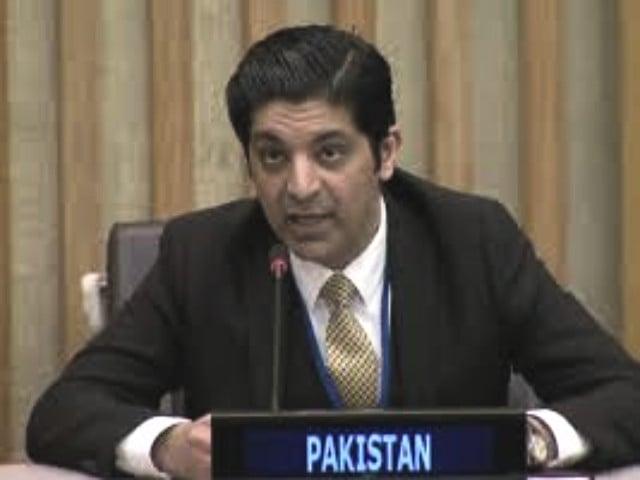The United Nations:
A Pakistani diplomat at the United Nations told the Office of Counter-Terrorism (UNOCT) that Islamabad had the “credible evidence” proving the hand of India in the Baloutchistan train hijage train last month, while providing a scathing response to Indian allegations.
Speaking during the launch of the victims of the Network of Terrorism Associations (Votan) by UNOCT in New York on Monday, the Pakistani counselor Jawad Ajmal rejected the accusation of New Delhi according to which Pakistan engaged in “baseless propaganda” against India.
Ajmal referred to the attack on the Balutchistan Liberation Army (Bla) against Jaffar Express near Sibi in March, which led to the loss of at least 30 innocent lives. “Pakistan has credible evidence that this attack has experienced external sponsorship of our opponents in the region,” he said in an obvious reference to India.
Ajmal used his right to respond to the declaration of the Indian permanent representative Yojna Patel, who accused him of misunderstanding the forum to “indulge in propaganda and make allegations without foundation against India”, and continued to allege that Pakistan was involved in terrorism.
Rejecting the accusations of the Indian delegate, Ajmal stressed Pakistan’s own difficulties against terrorism, citing the loss of more than 80,000 lives over two decades. He praised the resilience of the Pakistani nation and paid tribute to the families of martyrs of the organizations of the law and the armed forces.
In his speech earlier, AJMAL called to approach the deep causes of terrorism, to distinguish terrorism from legitimate struggles for self -determination and also to attack terrorism sponsored by the State.
He also called for a consensual definition of terrorism, taking into account new trends.
“We must remedy the challenges, emanating from new tools of terrorism on social networks and the dark web that seek to deepen divisions and sow the seeds of discord, including incentive to violence,” he said, stressing the need to counter disinformation campaigns aimed at spreading hatred discourse.
He also underlined the fate of the inhabitants of IIOJK, who suffered from victims of state terrorism perpetrated by the Indian state machinery. Indian authors must be held “responsible for state terrorism and crimes against humanity,” he said.
He reiterated the appeal to the international community, in particular to the United Nations Security Council, to force India to stop terrorism and the oppression of the State in Jammu-et-Cachemire, and demanded the implementation of the resolutions of the Security Council, which required a free and equitable plebiscite in the region.




